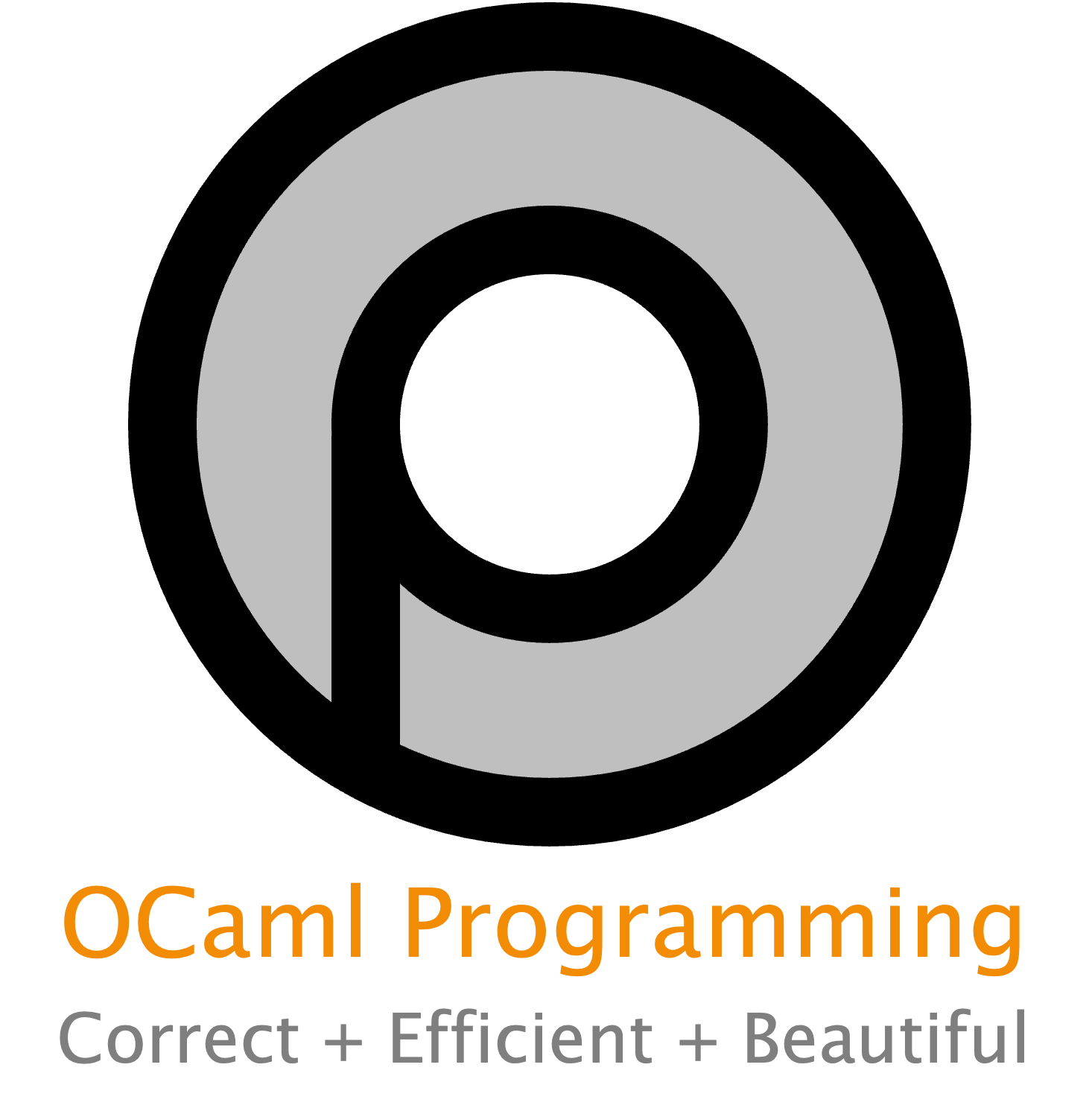3.13. Summary#
Lists are a highly useful built-in data structure in OCaml. The language provides a lightweight syntax for building them, rather than requiring you to use a library. Accessing parts of a list makes use of pattern matching, a very powerful feature (as you might expect from its rather lengthy semantics). We’ll see more uses for pattern matching as the course proceeds.
These built-in lists are implemented as singly-linked lists. That’s important to keep in mind when your needs go beyond small- to medium-sized lists. Recursive functions on long lists will take up a lot of stack space, so tail recursion becomes important. And if you’re attempting to process really huge lists, you probably don’t want linked lists at all, but instead a data structure that will do a better job of exploiting memory locality.
OCaml provides data types for variants (one-of types), tuples and products (each-of types), and options (maybe types). Pattern matching can be used to access values of each of those data types. And pattern matching can be used in let expressions and functions.
Association lists combine lists and tuples to create a lightweight implementation of dictionaries.
Variants are a powerful language feature. They are the workhorse of representing data in a functional language. OCaml variants actually combine several theoretically independent language features into one: sum types, product types, recursive types, and parameterized (polymorphic) types. The result is an ability to express many kinds of data, including lists, options, trees, and even exceptions.
3.13.1. Terms and Concepts#
algebraic data type
append
association list
binary trees as variants
binding
branch
carried data
catch-all cases
cons
constant constructor
constructor
copying
desugaring
each-of type
exception
exception as variants
exception packet
exception pattern
exception value
exhaustiveness
field
head
induction
leaf
list
lists as variants
maybe type
mutually recursive functions
natural numbers as variants
nil
node
non-constant constructor
one-of type
options
options as variants
order of evaluation
pair
parameterized variant
parametric polymorphism
pattern matching
prepend
product type
record
recursion
recursive variant
sharing
stack frame
sum type
syntactic sugar
tag
tail
tail call
tail recursion
test-driven development (TDD)
triple
tuple
type constructor
type synonym
variant
wildcard
3.13.2. Further Reading#
Introduction to Objective Caml, chapters 4, 5.2, 5.3, 5.4, 6, 7, 8.1
OCaml from the Very Beginning, chapters 3, 4, 5, 7, 8, 10, 11
Real World OCaml, chapter 3, 5, 6, 7
